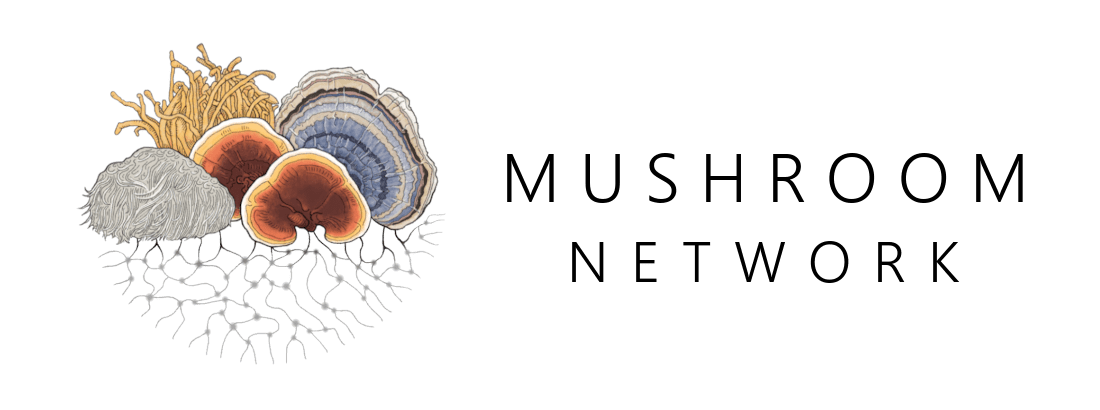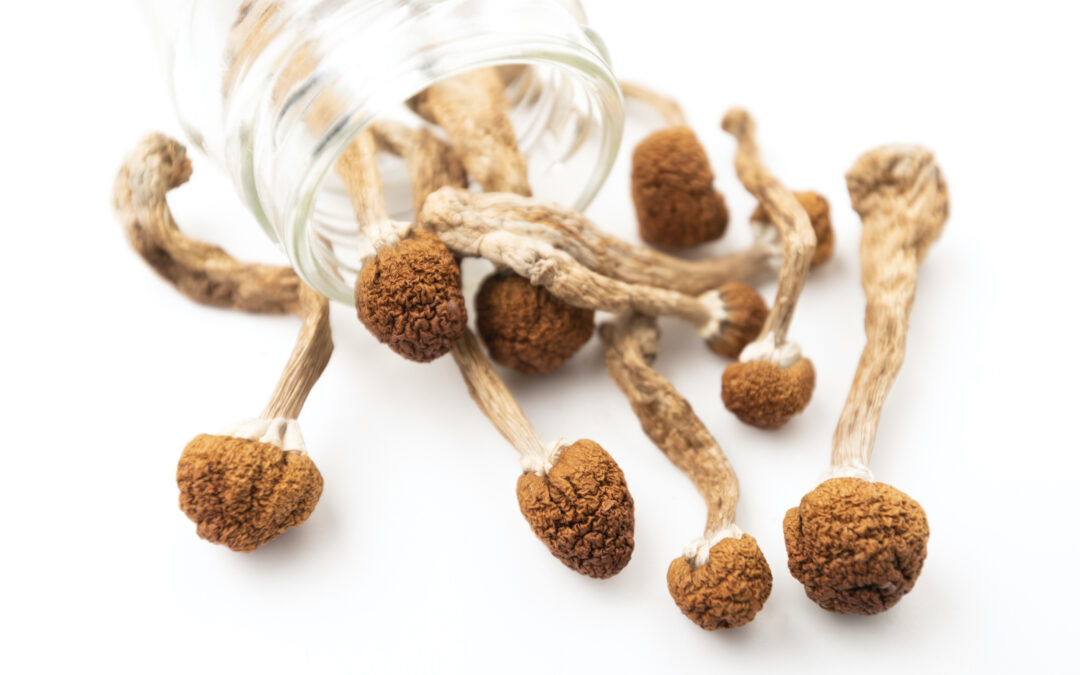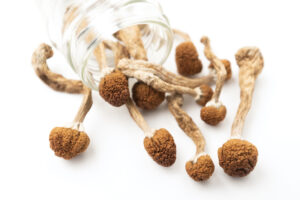Microdosing psilocybin, the active ingredient in magic mushrooms, has gained attention in recent years as a potential alternative treatment for depression. As individuals seek novel approaches to mental health, the practice of microdosing—taking subperceptual doses of psychedelics—has sparked both curiosity and controversy. In the United States, where the legal landscape surrounding psychedelics is evolving, questions arise about the legality and efficacy of using psilocybin for depression. This article provides an in-depth exploration of the current status of microdosing psilocybin for treating depression in the USA, examining the legal framework, research findings, benefits, risks, and future implications of this emerging therapeutic approach.
Overview of Microdosing Psilocybin for Treating Depression
Definition and Practice of Microdosing
Picture this: instead of gobbling down a handful of magic mushrooms to go on a cosmic journey, microdosing involves taking tiny, sub-perceptual doses. It’s like dipping your toe in the psychedelic pool rather than doing a cannonball. Microdosers swear by improved mood, creativity, and focus without the full-blown trip experience.
Introduction to Psilocybin and its Effects
Psilocybin is the magic ingredient in magic mushrooms that makes you feel one with the universe. It interacts with serotonin receptors in your brain, leading to altered perceptions, deep introspection, and maybe seeing colors that don’t exist. People report spiritual insights, enhanced creativity, and a sense of oneness with the cosmos.
Legal Status of Psilocybin in the United States
Current Federal Laws and Regulations
In the eyes of Uncle Sam, psilocybin isn’t exactly the life of the legal party. It’s classified as a Schedule I substance, sharing the cool kids table with heroin and LSD. This means it’s a big no-no for most uses, including recreational and therapeutic.
State-by-State Regulations and Decriminalization Efforts
Some states are starting to break out the peace pipes when it comes to psilocybin. Places like Oregon and California are leading the charge in decriminalizing or legalizing its use. However, the legal landscape is as trippy as a psychedelic experience, with a patchwork of laws across the country.
Current Research on Microdosing Psilocybin for Depression
Studies Evaluating Efficacy and Safety
Researchers are peeking behind the curtain to see if microdosing psilocybin could be a mood-lifting wizard for those battling depression. Preliminary studies suggest it might have potential, but more research is needed to separate fact from fiction.
Key Findings and Implications for Treatment
Could microdosing psilocybin be the antidepressant of the future? Some studies hint at its promise in boosting mood and reducing symptoms of depression. If the research pans out, it could shake up the mental health field like a good old-fashioned earthquake.
Challenges and Limitations of Using Psilocybin for Depression Treatment
Regulatory Hurdles and Stigma
Navigating the legal labyrinth of psilocybin regulations can be as tricky as pronouncing psilocybin after a few tries. Stigma also hangs over psychedelic treatments like a dark cloud, making it harder for them to step into the mainstream spotlight.
Individual Variability and Dosage Considerations
When it comes to microdosing, not all brains are wired the same way. What works like magic for one person may be a psychedelic nightmare for another. Finding the Goldilocks dose that’s just right can be a challenge, requiring a delicate balance of science and personal experimentation.### Potential Benefits and Risks of Microdosing Psilocybin
#### Positive Effects on Mood and Cognition
Microdosing psilocybin has been reported to have positive effects on mood and cognition. People often claim to experience increased creativity, focus, and emotional well-being. It’s like giving your brain a refreshing vacation without the hassle of airport security.
#### Possible Adverse Reactions and Long-term Risks
However, there are potential risks associated with microdosing psilocybin, including adverse reactions such as anxiety, paranoia, and increased heart rate. Long-term risks are still being studied, so it’s a bit like entering uncharted territory where the compass keeps spinning.
### Therapeutic Potential of Psilocybin for Mental Health
#### Psychedelic-Assisted Therapy Approaches
Psilocybin has shown promising results in psychedelic-assisted therapy for treating mental health conditions, including depression. It’s like having a therapy session while wearing rose-tinted glasses that make everything a little clearer.
#### Comparisons with Traditional Antidepressants
When compared to traditional antidepressants, psilocybin offers a different approach to mental health treatment. It’s like choosing between a classic black and white movie and a vibrant, technicolor adventure.
### Considerations for Individuals Interested in Microdosing Psilocybin
#### Guidelines for Safe and Responsible Microdosing
For those considering microdosing psilocybin, it’s essential to follow guidelines for safe and responsible use. Think of it as creating your own personalized user manual for a mental health journey.
#### Consulting with Healthcare Professionals and Therapists
Before diving into microdosing, consulting with healthcare professionals and therapists is crucial. They can provide valuable insights and guidance, like having a wise traveler show you the best routes on your mental roadmap.
### Future Outlook for Psilocybin as a Depression Treatment
#### Emerging Trends in Psychedelic Research and Treatment
The future outlook for psilocybin as a depression treatment looks promising, with ongoing research and emerging trends in psychedelic therapy. It’s like witnessing a mental health revolution that’s rewriting the old treatment scripts.
#### Potential Policy Changes and Impacts on Access to Psilocybin Therapy
As policies around psychedelics evolve, there may be changes in access to psilocybin therapy for depression. It’s like waiting to see if the gates to a new mental health frontier will swing wide open for all those in need.In conclusion, the discussion around microdosing psilocybin for treating depression in the USA reflects a growing interest in innovative mental health interventions. While legal and regulatory challenges persist, ongoing research and changing attitudes offer hope for the integration of psychedelics into mainstream healthcare. As individuals navigate their options for managing depression, it is essential to consider the potential benefits, risks, and legal considerations associated with microdosing psilocybin. With further exploration and dialogue, the therapeutic potential of psilocybin may continue to shape the future of mental health treatment in profound ways.









![How to Buy Shrooms Online in [Your Country/Region]](https://magicmushroomstore.us/wp-content/uploads/2023/07/Shoomiesstars-300x300.jpeg)





